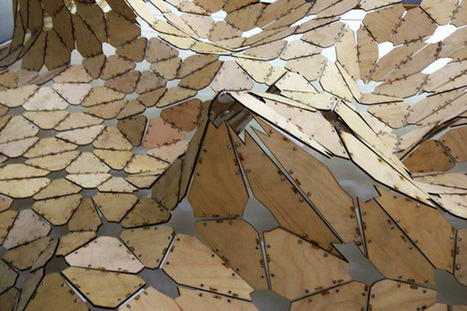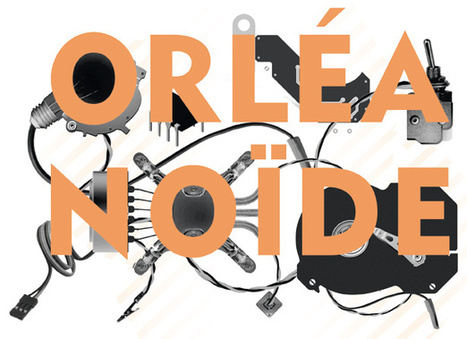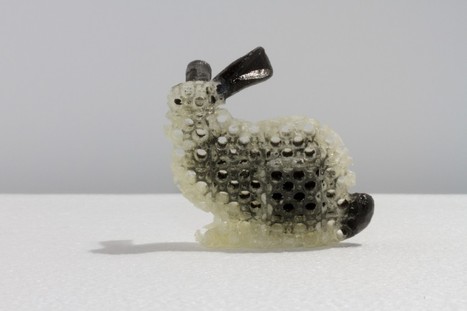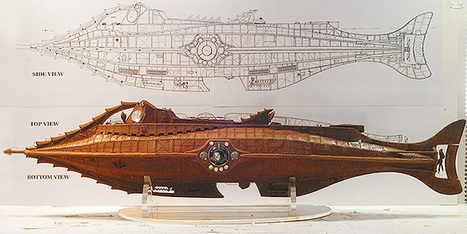 Your new post is loading...
 Your new post is loading...
This work is the fruit of a shared tech-art residency in the biggest rural fablab of Europe, "La fruitere numerique". The tech-artists specialties are a priori opposed in their disciplines but dialogue gave a new dimension to their work. After digging in the personalities, the obvious appears, the roots of this team's work join in a fundamental principle, a strong desire to give back life to apparently dead or unwanted material. Evolving in hackerspaces is also a great training for the tech side of the team, fighting against planned obsolescence being a tradition, the good reflexes were immediately ready. Moreover, "La Fruitiere Numerique" participates in this fight by collecting a great number of aging electronic devices so parts salvage was even simpler than finding food : infrared sensors & emitters from broken VCRs & remote, old mouse sensor, lasers from DVD burner, etc. The collaborations of these makers gave birth to an exhibition in which the visitor is in immersion. For him, it's a total artwork experimentation, in which every elements are connected.
Découvrez les nouveaux bricoleurs les 26 et 27 septembre 2015. Des machines qui impriment en 3D, des robots musicaux, du mobilier sur mesure open-source : il se passe des choses étonnantes dans les fablabs, ces ateliers de fabrication numérique où il est possible de fabriquer « presque n’importe quoi ».
organisé par l’association PiNG
Jusqu’au 14 novembre, la LPWA, l’Embarcadère et le Carrefour Numérique² de la Cité des sciences et de l’industrie de Paris s’associent pour du light painting. De Aubervilliers au bassin de la Villette à Paris dans le 19ème, le grand public pourra découvrir gratuitement la scène artistique internationale du light painting et expérimenter cette technique et la fabrication de ses outils. Les light painters présentés sont membres de la LPWA – Light Painting World Alliance. C’est l’organisation mondiale œuvrant pour le référencement de ses artistes et la diffusion du lights painting dans le monde.
Makery est un média d’information en ligne (newsletter, site web, réseaux sociaux) fondé par Digital Art International en juin 2014. Il est dirigé par Anne-Cécile Worms, est hébergé aux Ekluz, 13 rue des Ecluses Saint-Martin (75010) à Paris. Il a pour vocation de rendre compte du dynamisme et d’informer sur l’émergence d’une scène des labs, fablabs (laboratoires de fabrication, une terminologie née aux Etats-Unis au sein du Medialab du MIT en 2001), hackerspaces (des espaces autogérés par des personnes désireuses de détourner les technologies), médialabs, living labs (appelés aussi tiers lieux, ils embrassent l’industrie dans ces processus d’innovation et d’expérimentation numérique ouverts), biohacklabs (la version scientifique et bioinformatique des hacklabs).
C’est un média en mode DiY : avec son équipe réduite, Makery se construit progressivement en mode ouvert, transparent et participatif, suivant les principes d’éthique numérique portés par la vague des labs.
A quelques pas de NUMA, le grand lieu de l'innovation et du numérique de Paris, de la Gaité Lyrique, le lieu des cultures numériques, de Beaubourg, du Louvre et du Ministère de la Culture, Les nouveaux locaux de Digitalarti, situés au 50 rue d'Aboukir, sont au cœur du numérique et de la culture à Paris.
Waag Society, institute for art, science and technology, develops creative technology for social innovation.
Waag Society, institute for art, science and technology, develops creative technology for social innovation. The foundation researches, develops concepts, pilots and prototypes and acts as an intermediate between the arts, science and the media. Waag Society cooperates with cultural, public and private parties.
Waag Society follows the method of Creative Research. Creative Research is experimental, interdisciplinary research. Artists, creatives and end users have a central position and a large influence on the final result: Users as Designers. The classic approach of science and the standard model of research and development is enhanced by this method that cross-links arts, culture and science. Creative Research will bring applications that are suited to the needs and possibilities of their users and is related to participatory design, rapid prototyping, practice based research and tinkering. Waag Society has a strong focus to let user groups participate in internet, new media and technology that otherwise have limited access.
Within the organisation, specific themes are used to develop multiple projects, called Labs. At the moment there are six different Labs: - Creative Care Lab
- Creative Learning Lab
- Future Internet Lab
- Open Design Lab
- Urban Reality Lab
- Open Wetlab
If you are reading this, it is probably because you are wondering “what has to do a cake with an Arduino?” It is all about passion - we love electronics and we love cooking! We talk about many topics during our coffee breaks here in Libelium, places to visit, movies, technology trends, recipes... And due to many of our staff being electronic and software engineers we also usually share small hacks to improve our everyday life. A long time ago, we observed how recipes and electronics hacks share the same pattern: there is always a list of ingredients or components and a step-by-step set of instructions to get the result. Doing electronic hacks is no more difficult than cooking when you have the right instructions and ingredients - and both give you tons of fun! What if we created a place for making electronics as common as cooking so that people could share these two passions with us? We accepted our own challenge and two years later Cooking Hacks is born! Cooking Hacks tries to spread the electronics to everyone by making it affordable, easy learning, fun and supported by a big Community. If you can cook, you can get into electronics and vice versa!
Fab labs provide widespread access to modern means for invention. They began as an outreach project from MIT's Center for Bits and Atoms (CBA). CBA assembled millions of dollars in machines for research in digital fabrication, ultimately aiming at developing programmable molecular assemblers that will be able to make almost anything. Fab labs fall between these extremes, comprising roughly fifty thousand dollars in equipment and materials that can be used today to do what will be possible with tomorrow's personal fabricators. Fab labs have spread from inner-city Boston to rural India, from South Africa to the North of Norway. Activities in fab labs range from technological empowerment to peer-to-peer project-based technical training to local problem-solving to small-scale high-tech business incubation to grass-roots research. Projects being developed and produced in fab labs include solar and wind-powered turbines, thin-client computers and wireless data networks, analytical instrumentation for agriculture and healthcare, custom housing, and rapid-prototyping of rapid-prototyping machines. Fab labs share core capabilities, so that people and projects can be shared across them. This currently includes: - A computer-controlled lasercutter, for press-fit assembly of 3D structures from 2D parts
- A larger (4'x8') numerically-controlled milling machine, for making furniture- (and house-) sized parts
- A signcutter, to produce printing masks, flexible circuits, and antennas
- A precision (micron resolution) milling machine to make three-dimensional molds and surface-mount circuit boards
- Programming tools for low-cost high-speed embedded processors
These work with components and materials optimized for use in the field, and are controlled with custom software for integrated design, manufacturing, and project management. This inventory is continuously evolving, towards the goal of a fab lab being able to make a fab lab.
On the consequences of the emerging open-source, digital fabrication, and do-it-yourself paradigm on Design, its practice and the society
On the FabLab potential to enable metadesign and networked design by/for all (or something like that)
Artistes bidouilleurs, techniciens amateurs d’art, le Artlab et les Ekluz vous invitent le samedi 30 novembre à venir créer, prototyper, vous faire plaisir, lors du Hack Inutile, 1ère édition.
« Sortez et faites quelque chose! » Tel est le slogan de Sylvia, une jeune américaine de 12 ans, icône du mouvement des « makers » (littéralement, « faiseurs »). Le mouvement trouve écho dans certaines écoles, où on considère que chacun a le droit et l’habileté de fabriquer, refaire ou améliorer quelque chose. Du concret, quoi.
Aidée de son père et de sa mère, Sylvia en est à sa troisième saison de publication de capsules vidéo sur son site, dans lesquelles elle présente un projet de fabrication d’objet. Sa plus récente capsule explique comment bâtir un pendentif qui scintille au rythme des battements du cœur de la personne qui le porte. En 1994, Steve Jobs, l’homme derrière l’empire Apple, a affirmé ceci : « tout ce qui vous entoure a été créé par des gens qui n’étaient pas plus intelligents que vous. Vous pouvez vous aussi fabriquer des choses que les autres utiliseront. » Ce principe peut-il entrainer une petite révolution en éducation? Certains croient que oui. Dans un article du site TheDigitalShift, on entre dans la classe de Andrew Carle, enseignant en Viriginie, qui organise des périodes de création libre pour ses élèves du 1ère cycle du secondaire. Il parsème les tables de matériel comme des fils, des outils, des livres de référence, des ordinateurs, etc. L’espace d’une heure, les élèves deviennent des consultants, des designers, des inventeurs. ....
Via frederique
Au cours d’une résidence à Yes We Camp ! au mois de juillet 2013, nous souhaitons adapter un système initialement conçu pour détecter les besoins des plantes en eau, au projet que nous avons imaginé : faire du Jardin du Camping un acteur à part entière de Yes We Camp. Par l’intermédiaire d’un système interactif léger et open source, le Jardin du Camping sera connecté à Internet et les plantes pourront envoyer des messages sur Twitter. Notre résidence au camping est une invitation à explorer les ponts entre les plantes/le jardinage et des outils numériques aujourd’hui accessibles à tous. Nous proposerons autour de ce jardin bavard, des ateliers participatifs en lien direct avec le projet ou, plus généralement, sur l’utilisation d’outils qui démocratisent la technique au profit de l’imagination (fabrication numérique, Arduino, etc.). Frédérique Muscinési (Ultra-lab – hardware open source pour la création) Lisa George (Tulipo – jardinage urbain) Dans le Jardin du Camping, les plantes savent ce qu’elles veulent et le disent en utilisant les moyens de communication modernes. Laconiques par nature, elles ont choisi d’envoyer des messages de moins de 140 caractères via leur compte Twitter @jardinducamping
|
Le Festival est l’occasion, pour les FabLabs français et européens, d’organiser des temps de rencontres et d’échanges autour des projets de chacun. Le Festival donne l’occasion aux curieux, aux débutants et aux habitués de s’immerger, le temps d’un week-end entier, dans un monde de création et de fabrication : un monde où les idées peuvent se concrétiser rapidement. Chacun a la possibilité de rencontrer et d’échanger avec nos makers, ou bien de participer à des ateliers pour apprendre à créer.
Que diriez-vous d’avoir accès à des collections muséales du monde entier, d’appréhender l’usage des nouvelles technologies, de créer, d’innover, de travailler et de vous détendre au sein d’un même espace, moderne et attrayant ? C’est tout le programme proposé par la Fruitière Numérique dans l’ancienne coopérative de fruits et légumes du village (3200m² bâtiment et espaces extérieurs). La Fruitière Numérique est un véritable lieu de transmission du savoir numérique, un lieu culturel propice à la pensée et à la créativité, un lieu de production intellectuelle et d’apprentissage mais aussi un lieu de découverte, d’échanges et de convivialité au service de la citoyenneté numérique, un lieu ouvert à tous (particuliers, entreprises, écoles, associations, collectivités…).
Le coup de gueule contre la «vogue» des projets de fablabs (la possibilité de faire plutôt que le faire) par le pionnier français du net-art Grégory Chatonsky.
Dans le cadre de l’inauguration du FabLab Mons (rassemblant 6 partenaires fondateurs : l’UMONS, La Maison du Design, ARTS², la HEH, Transcultures, Technocité et 3 partenaires institutionnels : la ville de Mons, Mons2015 et le Mundaneum) venez découvrir ,de manière conviviale, le fonctionnement d’une imprimante 3D, d’une découpeuse laser, d’un scanner 3d, d’une découpeuse vinyle, d’une CNC,…
Le RElab, premier Fab Lab de Wallonie, est un atelier numérique ouvert au public et une structure de développement créatif local à Liège. Utilisation de matériaux de récupération comme matière première (upcycling).
FAB10 Barcelona is the tenth international conference and annual meeting of the Fab Lab network. FAB10 Barcelona will gather the international Fab Lab community from more than 150 laboratories based in more than 40 countries, who share tools, projects, programs and processes in an open and collaborative philosophy.
ANAT [Australian Network for Art and Technology] supports artists and creative practitioners engaging with science and technology, within Australia and beyond.
For the past 25 years, the Australian Network for Art & Technology (ANAT) has been a catalyst for experimentation and innovation across art, science and technology. ANAT champions artistic excellence by supporting professional artists and fostering a culture of creative risk-taking, secures the necessary resources to enable artists to pursue creative research and realise groundbreaking artworks, and communicates the importance of creative experimentation and expression within the arts and – increasingly – in broader
Au menu de "3D" : les FabLabs, ces laboratoires de fabrication ouverts à tous. Pour nous en parler : Emmanuelle Roux, Fabien Eychenne et Raphaël Gorgé Dans 3D dimanche, les FabLabs, contraction de fabrique et de laboratoires. Sont-ils les nouveaux lieux du monde post-industriel? Après les manufactures, les usines, les garages de la Silicon Valley qui ont porté la révolution informatique, ces nouveaux ateliers d'innovation mettent les imprimantes 3D à notre disposition. Le temps de la création collective? Nous avons le plaisir de recevoir Emmanuelle Roux, Fabien Eychenne et Raphaël Gorgé.
Via Aurelie Ghalim
Pour la seconde année, la mairie d'Orléans met à l'honneur le numérique dans la création contemporaine avec le festival Orléanoïde, sous la direction artistique de Labomedia. Culture et technologie sont à nouveau associées à travers des concerts, des spectacles pour le jeune public, des conférences, des ateliers et des expositions pour tous. Le partenariat avec la Maison des Arts de Créteil et la mobilisation de l'Astrolabe, le 108, la Maison des Arts et de la Musique, le Musée des Beaux Arts, le Muséum de Sciences Naturelles, la Collégiale Saint-Pierre-Le-Puellier, Les Turbulences - Frac Centre et laMédiathèque donnent naissance à un véritable parcours dans la ville pour en faire un laboratoire numérique. Orléanoïde accorde cette année une attention particulière à la médiation autour d'œuvres parfois mystérieuses, pour mieux explorer leurs messages intrinsèquement liés aux questions économiques, sociales et environnementales qu'elles soulèvent. ...
Although 3D printing technology has progressed in leaps and bounds in recent years, most printers are still only capable of printing a solid object out of a single material. That's fine if you want to produce a plastic object with the same density throughout, but what if you want to use multiple materials in the one object or alter its internal architecture to vary its density and therefore its flexibility? A team at MIT's Computer Science and Artificial Intelligence Lab (CSAIL) has developed a new software pipeline that makes both these things possible.
Via Andrea Graziano, Ina Dumitriu
This is the question that some heads are beginning to ask themselves, as soon as the topic starts to become mainstream; for instance, De Biase’s head, some days ago, on “Il Sole 24 ore” (an italian newspaper dealing with economy, n.d.t.), after having talked about the experience of Francesco Bombardi with the Fablab of Reggio Emilia, identifies the fundamental challenge that awaits the FabLab in the connection and integration of its activities with industrial and craft production. It’s something WE have to ask ourselves, if we don’t want adapt passively to the ‘stuffy narrative that has developed in social and economic contexts very far from our own, and that we risk import just as they are, although the way in which they can operate in an American FabLab is surely not the same way they should work here. Moreover, the Fab Charter is sufficiently wide to allow to create a real FabLab without copying it from the existing ones.
In fact, just thinking about Italy, there are a lot of FabLab: they may suppbeorted by single or associated businnesses, inserted in public projects, indipendent or linked with other institutions (like small research/training groups). Some of them are companies, others are projects started by individuals or small groups, associations (more or less structured, more or less numerous). Some of them are located in big cities, others in small towns; some has large spaces, other more narrow … well, there are a lot of examples.
Via Aurelie Ghalim
|



 Your new post is loading...
Your new post is loading...



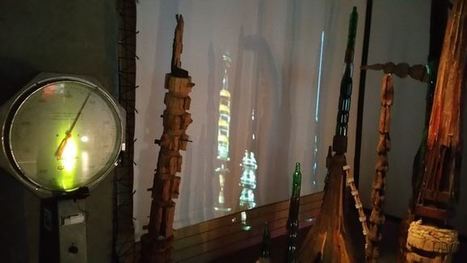
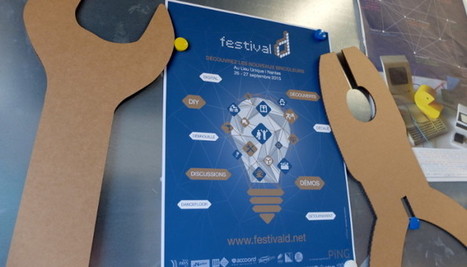
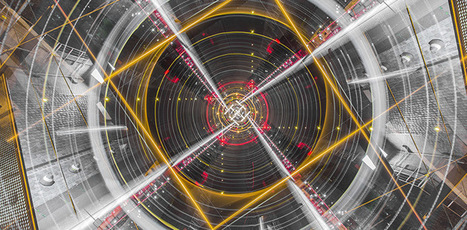

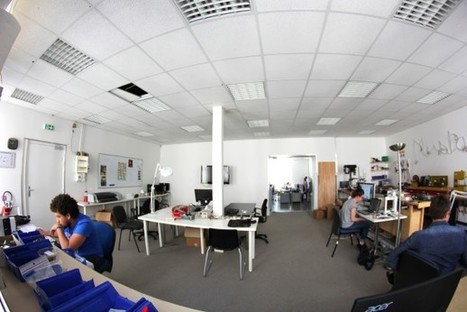
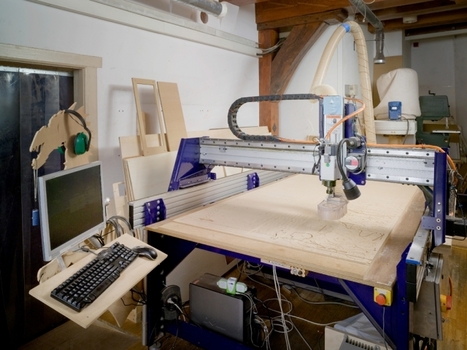
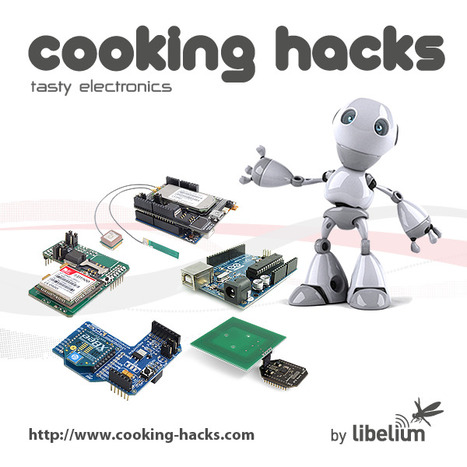
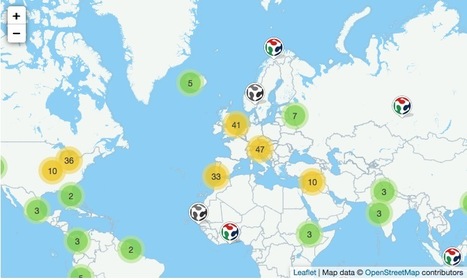
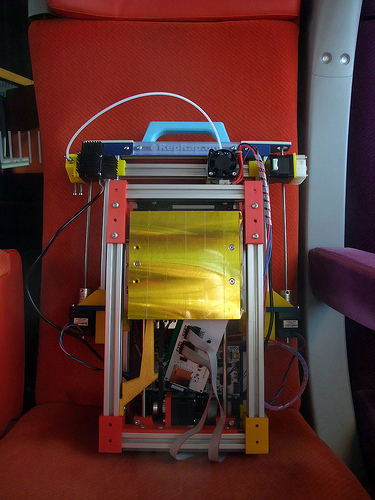

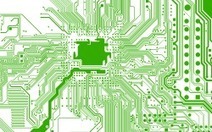
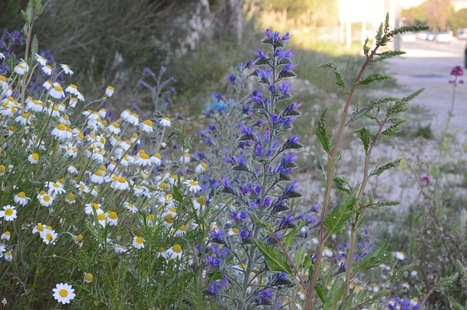
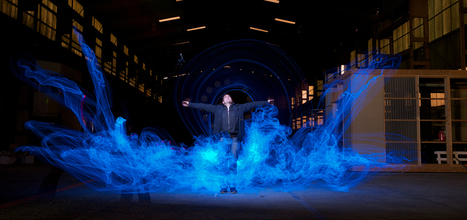
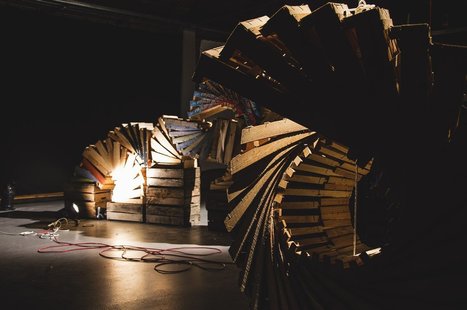
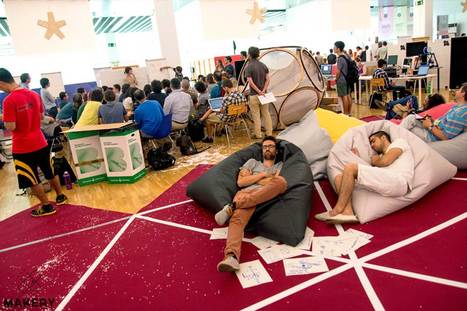
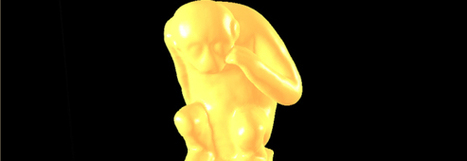
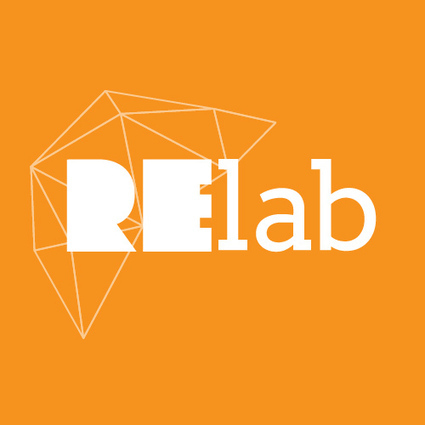
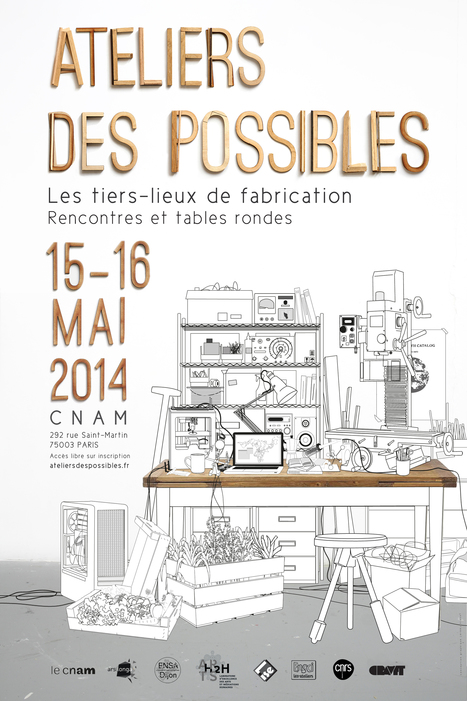
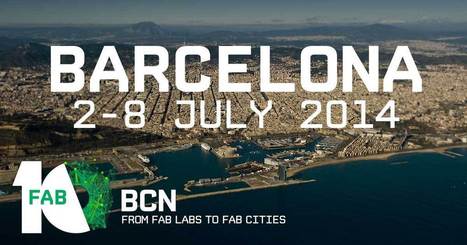
![ANAT [Australian Network for Art and Technology] | Digital #MediaArt(s) Numérique(s) | Scoop.it](https://img.scoop.it/DHGZfdu1dFy_Wt0c7lTkGzl72eJkfbmt4t8yenImKBVvK0kTmF0xjctABnaLJIm9)
